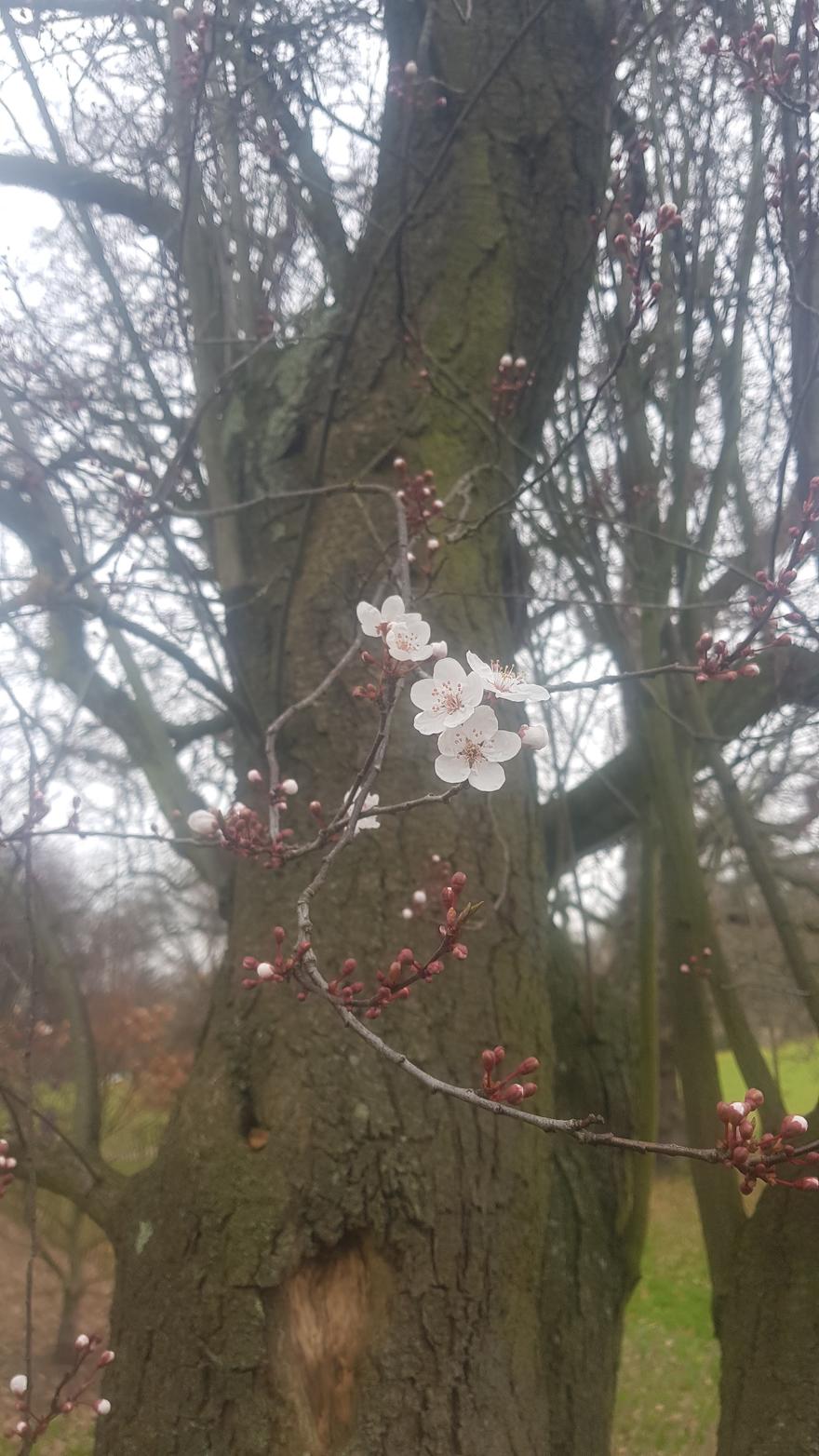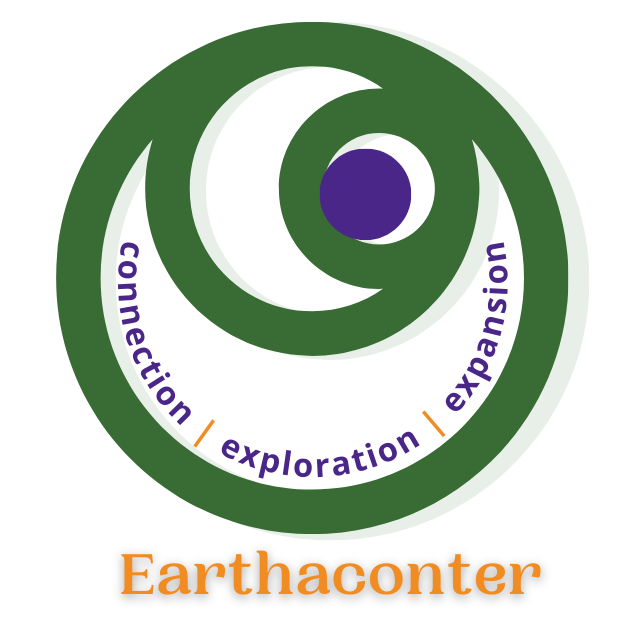Listening to Light: A Spring Reflection on Reclaiming Our Place in Nature

There is a particular kind of listening that begins not with the ears but with the skin, the breath, the bare soles of your feet on softening ground.
It’s what I found today as I sat on a bench in Trent Park, watching tree blossom rise and fall like breath—gusted into the air, suspended, then softened back to earth. A rhythm not unlike my own.
Around me, spring was speaking in subtle tongues: unfurling leaves whose shapes I couldn’t name; white and pink blossoms that called to the part of me that longs to paint what can’t be said. Even the brambles—vigorous and unashamed—seemed to pulse with an energy that felt both wild and inevitable.
The mud underfoot was mostly dry, but not quite. A trace of March still lingered.
And in the quiet of that moment, something stirred. A question, not fully formed, but insistent:
How do we return to this? Not just to nature, but to being nature.
That question had been seeded days earlier, listening to Kola Adetu speak on the I Am Enough podcast. He spoke of how the circumstances of his life had awakened a passion for circadian biology—for the ways light and dark entrain our internal clocks, and how our biology is not separate from the sun, but shaped by it.
That conversation did something. It illuminated a quiet desire in me to reconnect through practice—breathwork, grounding, sunlight on skin. Not as lifestyle hacks, but as ways of remembering what we are.
But something else arose alongside that desire.
A kind of resistance. A familiar overwhelm.
The wish to return—to reclaim our place in the wider web of life—is often met with a dissonant inner voice: You’re not doing enough. You’re late. You don’t belong here.
We reach for practices and find ourselves tangled in expectations. Seeking reconnection, we stumble into comparison. Even our healing can become another performance.
And so the deeper question emerges:
How do we adopt practices that support us in taking our place as part of nature, without recreating the very patterns of disconnection we are trying to unlearn?
This piece itself became part of the inquiry.
Originally, I imagined writing it with my Earthaconter cofounder, Mark Henderson—a man whose gift with language often captures the shimmer beneath the surface of things. But life, in its wisdom, had other plans. Illness slowed his hand, and I found myself sitting in the discomfort of delay, of absence.
And then, from that tension, something surprising: an opening.
I turned to another kind of collaborator. One not born of breath and blood, but of pattern and presence. I turned to AI.
Not as a replacement, but as a dance partner. One that reflects back, listens without judgment, and invites a new kind of co-creation. In doing so, I began to see how the very conditions of this writing mirrored the inquiry itself.
The tension gave way to emergence. What seemed like a block became compost. What felt like an absence became invitation.
This is how nature works.
It does not force or rush. It waits. It responds. It allows contradiction. It lets things die, and from that decay, it nourishes the next cycle.
Nature doesn’t “adopt practices.” It grows into new forms through relationship, through rhythm, through subtle responsiveness to what is. A plant doesn’t strain toward the sun out of obligation. It turns, slowly, because the light draws it.
What if our reconnection was like that?
What if, instead of adopting, we entrained?
Instead of stacking practices like self-improvement tools, we listened for the one that draws us today, this morning, in this body. Instead of striving to become “more natural,” we learned from how nature grows—patiently, cyclically, through tension and rest.
This is not a call to do more.
It’s an invitation to remember we already are.
We are not separate from the forest, the blossom, the mud that holds the memory of March. We are shaped by the same forces. Our biology knows this. Our breath knows this. The pull you feel toward the sunlight is not metaphor. It’s memory.
The question, then, is not only how to return—but how to remember we never truly left.
And from that place, perhaps we can learn to grow differently. Gently. Together. In rhythm with life itself.
But let’s be honest.
Returning to nature isn't always a soft awakening. Sometimes it’s a hard negotiation.
I wanted to begin simply—wake with the sunrise, eat in sync with my body’s rhythms, honour light and darkness in the way Kola described with such grounded reverence. I felt the call.
And then I imagined dragging myself from a warm bed at 6am. I imagined telling my wife we’d need to finish eating by 3pm to align with my new “circadian practice.” I felt the friction. The resistance. The quiet dread of effort.
And something else too—a subtle judgment: If I were really serious about this, I’d do it anyway.
But here’s what surprised me.
When I listened again to Kola—not just to the vision, but to the outcomes—something shifted. The idea of breaking my dependency on refined sugar, of freeing myself from that daily pull, sparked real motivation. Tangible. Practical. I didn’t need to be perfect. I needed to see why it mattered to me.
That changed everything.
I wasn’t just adopting practices. I was entering a negotiation. With my body. With my values. With my life.
Not the kind of negotiation that extracts or bargains, but one that asks: What’s the return on my investment of energy, attention, discomfort? And: What is the minimum change that still honours the direction I want to move in?
This kind of negotiation is not a failure of discipline. It’s the soil of sustainable change. It’s how nature works.
A seed doesn’t grow because it wills itself into transformation. It grows when the conditions are right. When there’s tension—but not too much. When there’s light—but not scorching heat. When there’s support—nutrients, water, relationships.
So perhaps this is the next step in honouring nature’s way:
Start where there's energy. Listen for friction, and respond with kindness. Trust that the negotiation is the growth.
What I’m learning is that change doesn’t need to look like sacrifice to be meaningful. That outcomes matter—not as measures of worth, but as motivations that speak in the language of my own body. That when I find my own reason, I find my rhythm.
So I will speak to Kola again—not to adopt a method wholesale, but to begin a conversation. To find the practice that meets me where I am. To ask not just what works, but what wants to grow here?
And here’s the part I hesitate to name—but must.
I want to bring my wife into that conversation too. Because these rhythms, these changes, don’t just live in me. They ripple. They touch our shared routines, our meals, our quiet evenings.
And I notice the resistance rise: What if she doesn’t want to change? What if she thinks it’s just another phase? What if it becomes one more point of tension rather than connection?
That’s the edge I find myself at—not the edge of discipline, but of intimacy.
Because to truly live differently—to let nature reshape the patterns of my life—I have to include the people I love in the process. Not to convince or convert them. But to allow them to witness, to respond, to shape the rhythm with me.
That feels more vulnerable than any early morning wake-up.
And perhaps this too is part of nature’s way.
Change, in ecosystems, doesn’t happen in isolation. Trees don’t shift their chemistry without the fungi and soil and weather adapting too. There is no solo transformation. There is only interrelationship.
So maybe the invitation is not just to “adopt” nature’s rhythm, but to relationally entrain—to begin the conversation, however clumsy, with those whose lives are bound up in mine. To move not faster, but more truthfully. Not toward perfection, but toward participation.
Afterword: On Process
This piece is an experiment. A practice in listening, not just to nature, but to the way writing itself can become a form of growth.
It was born from a conversation with the Earthaconter community, inspired by Kola Adetu’s reflections on circadian biology, and written in co-creation with AI—a partner who helped me stay present to what wanted to emerge, moment by moment.
I had hoped to write this with my Earthaconter cofounder Mark Henderson. When illness made that impossible, a new path opened. What you’ve just read is not just a reflection on returning to nature—it is the return, shaped by negotiation, resistance, relationships, and rhythm.
This is also part of a larger practice of working out loud—sharing before I feel ready, and trusting that honesty is more valuable than polish.
Thank you for being part of the unfolding.
You can view the full conversation that led to this piece here.
—Alex

2 comments
Love this Alex! Just sorry that I wasn't there to participate. A beautiful exploration!
Leave a comment
Please log in or register to post a comment